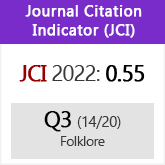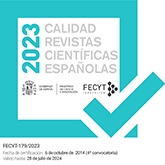Batallas de custodia trans-especie y la reformulación de lazos de familia
DOI:
https://doi.org/10.3989/dra.2020.009Palabras clave:
Animales de compañía, Parentesco, Disputas domésticas, Familias trans-especie, Estados UnidosResumen
Este artículo es una contribución a la creciente literatura antropológica sobre las relaciones hombre-animales y las familias trans-especie. Cada vez más, las mascotas domésticas en los Estados Unidos se consideran miembros de la familia. De hecho, estos animales a menudo son tratados como parientes reales o sustitutos, ya sea cónyuge, hijo o hermano. Una consecuencia de esta tendencia es la aparición de batallas legales entre parejas que se separan por la custodia del perro o gato. A pesar de los códigos legales formales, que definen a los animales domésticos como propiedad personal, la separación de las parejas en la actualidad introduce criterios subjetivos en argumentos a favor o en contra de la custodia de los animales. Estos incluyen, por ejemplo, el tiempo que cada compañero pasa con el animal, que parece más dedicado al animal, o que ocupa un hogar que sería más ventajoso para el bienestar del animal. Los casos examinados en este artículo muestran que, si bien la mayoría de los jueces reconocen la presencia de factores impulsados por las emociones en cualquier batalla por la custodia, siguen cumpliendo con la definición de animales de compañía como propiedad. Sin embargo, los abogados de hoy en día sostienen que la nueva definición de familia trans-especie, junto con el papel social y afectivo mejorado de los animales, son apropiados para la consideración judicial en los juicios de custodia de mascotas.
Descargas
Citas
ABC. 1993. 20-20: You'll never get the dog. ABC television broadcast, 26 Feb.
Albert, Alexa and Kris Bulcroft. 1988. "Pets, families, and the life course". Journal of Marriage and the Family 50(2): 543-552. https://doi.org/10.2307/352019
American Pet Products Association. 2015. Available at: <http://www.americanpetproducts.org/press_industrytrends.asp>. Accessed: 14 Apr. 2015.
Bartiromo, M. 2012. "We're breaking up: who gets the dog?". Fox News Magazine 9 Nov. Available at: <http://magazine.foxnews.com/love/were-breaking-who-gets-dog>. Accessed: 15 Nov. 2014.
BBC. 2010. German man 'marries' his dying cat, 10/3/2010. Available at: <http://news.bbc.co.uk/2/hi/8658327.stm>. Accessed: 15 Nov 2014.
Bhattacharya, S. 2005. "To love, honor and belly-scratch". Los Angeles Times Magazine, 9 Jan. Available at: <http://articles.latimes.com/2005/jan/09/magazine/tm-petcustody02>. Accessed: 26 Mar. 2015.
Brandes, Stanley. 2009. "The meaning of American pet cemetery gravestones". Ethnology 48(2): 99-118.
Brandes, Stanley. 2012. "Dear Rin Tin Tin: an analysis of William Safire's dog-naming survey from 1985". Names 60(1): 3-14. https://doi.org/10.1179/0027-773811Z.0000000001
Britton, A. H. 2006. "Bones of contention: custody of family pets". Journal of the American Academy of Matrimonial Lawyers 20(1): 1-38.
Coren, S. 2005. "The Dogs of Hurricane Katrina: Medicine for the Mind". Modern Dog Magazine, Winter 2005/2006, <http://moderndogmagazine.com/articles/dogs-hurricane-katrina/151> (accessed 25/10/14). https://doi.org/10.1016/S1359-6128(05)71098-3
Descola, Philippe. 2013a. Beyond Nature and Culture. Chicago: University of Chicago Press.
Descola, Philippe. 2013b. The Ecology of Others. Chicago: Prickly Paradigm Press.
Franklin, Adrian. 1999. Animals and Modern Cultures: A Sociology of Human-Animal Relations in Modernity. London: Sage.
Gavriele-Gold, Joel. 2000. When pets come between partners: how to keep love-and romance-in the human/animal kingdom of your home. New. York: Howell Book House.
Gregory, John DeWitt. 2010. "Pet Custody: Distorting Language and the Law". Family Law Quarterly 44(1): 35-64.
Grubbs, J. 2014. When divorce goes to the dogs: custody of family pets during a divorce. Coltrane Grubbs Orenstein. Available at: <http://www.coltranegrubbs.com/familylaw/pet-custody/>. Accessed: 26 Mar. 2015).
Hamilton, J. T. 2005. "Dog custody case attracts nationwide attention", in W. L. Montell (ed.), Tales from Tennessee Lawyers:180-183. Lexington: University Press of Kentucky.
Hefler, J. 2009. "Canine conundrum: duking it out over N.J. dog's custody", The Philadelphia Inquirer, 30/7/09. Available at: <http://articles.philly.com/2009-07-30/news/25290031_1_dexter-dog-share-custody>. Accessed 3 May 2015).
Journal of the American Veterinary Medical Association News. 2005. 'Statistics reveal strength of human-animal bond', 1 July. Available at: <https://www.avma.org/News/JAVMANews/Pages/050701k.aspx>. Accessed: 10 Mar. 2015.
Knight, John. 2005. Animals in Person: Cultural Perspectives on Human-Animal Intimacies. Oxford: Berg.
marryyourpet.com. Available at: <http://www.marryyourpet.com/stories.html>. Accessed: 28 Jul. 2015.
Podberscek, Anthony, Elizabeth Paul, and James Serpell, eds. Companion Animals and Us: Exploring the Relationships between People and Pets. New York: Cambridge University Press.
Power, Emma. 2008. "Furry families: making a human-dog family through home". Social & Cultural Geography 9(5): 535- 555. https://doi.org/10.1080/14649360802217790
Schaffer, Michael. 2009. One nation under dog: adventures in the new world of prozac-popping puppies, dog-park politics, and organic pet food. New York: Henry Holt and Co.
Sullivan, Diane, and Holly Vietzke. 2008. "An animal is not an ipod". Journal of Animal Law 4: 41-58.
Publicado
Cómo citar
Número
Sección
Licencia
Derechos de autor 2020 Consejo Superior de Investigaciones Científicas (CSIC)

Esta obra está bajo una licencia internacional Creative Commons Atribución 4.0.
© CSIC. Los originales publicados en las ediciones impresa y electrónica de esta Revista son propiedad del Consejo Superior de Investigaciones Científicas, siendo necesario citar la procedencia en cualquier reproducción parcial o total.Salvo indicación contraria, todos los contenidos de la edición electrónica se distribuyen bajo una licencia de uso y distribución “Creative Commons Reconocimiento 4.0 Internacional ” (CC BY 4.0). Puede consultar desde aquí la versión informativa y el texto legal de la licencia. Esta circunstancia ha de hacerse constar expresamente de esta forma cuando sea necesario.
No se autoriza el depósito en repositorios, páginas web personales o similares de cualquier otra versión distinta a la publicada por el editor.
















